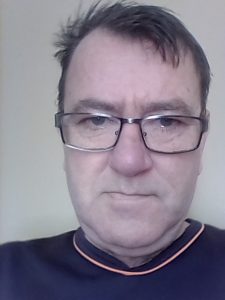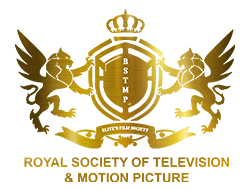
Screenwriting: The SHORT of it…
…versus the FEATURE. Here we take a look at the key elements of screenwriting. As we know, it’s the elements that connect to carry the load and balance out your story… STRUCTURE. This being the core difference between a feature and a short screenplay/script. From your prewrite – outline and or treatment we get an idea of how we’ll structure our story/script. In doing this for a feature, you don’t have to follow it to the T, as through your writing you’ll most likely make many changes… for all subplots that may change your storyline. This is all fine, as you have around 120 pages to play with, and it’s only the first draft.
Assuming this script was, JAWS? You can appreciate that it does not make for a 20/30 page short! That said, keep in mind that your story idea would best fit either a feature or a short… there is no real in-between. A story meant to be a short, pushed to be a feature would most likely be overwritten, boring in coming to its plot ending. A feature story written as a short would most likely lack important information, backstory, exposition – confusing.

In thinking up a story, or one that comes to mind… we not really coming up with a story, but rather a plot. And the plot is a result of an inciting incident. The story is the in-between, and it can be a long (feature) one, or a SHORT one? Generally, it’s the inciting incident and plot that determines the amount of story required to not just understand the what, why, how happened (incident), but the events (action) required to resolve it… plot. To effectively do this requires X amount of locations and characters, among others. Some many? Some few? The sum of which equals production cost verse marketability/sales. So we see that “X” is a big fracture when it comes to shorts. And it’s with this, and all else said, that when we conceptualize a short story idea, and write it, that we keep in mind…
Short films are not “lesser” in story, they compact and strategic. They can be a very powerful way of conveying a huge amount of depth and meaning in a small amount of time.
– 5 to 20 Pages… 30 MAX!
– GENRE: Think production cost… that’s why Si-Fi space ships and aliens is pretty much a no no. And character-driven drama is popular. If possible, don’t genre blend.
– THEME: Stick to one, two at most if it’s say, love & hate. Be wary of themes that may require excessive violence and or action. They are great on paper, but expensive to film.
 – PREMISE/WORLD: Best to keep it on earth. Stick to the premise your story requires, don’t sway from it. Keep it simple and true to your story theme.
– PREMISE/WORLD: Best to keep it on earth. Stick to the premise your story requires, don’t sway from it. Keep it simple and true to your story theme.
– STORY: Short, sharp and clear with a distinctive plot that’s recognized as early as possible. You’d want your story to focus and move solely towards it… as few as possible subplots, non if you can. Create a strong incitement that gives for a challenging resolution with a great plot- 3 acts.
– CHARACTERS: Have as few as possible and ideally have one protagonist (or antagonist) with one goal that has high stakes. Characters must be well arced, described, and toned. Characters must be engaging and we must be able to emotionally bond with them as soon as possible… there is no time for character backstory.
– DIALOGUE: Short and to the point… but, always informative to move the story forward. Where possible, use dialogue to give exposition as opposed to physical action, eg, a fight. Dialogue with a strong tone to an emotion that is visual can be more powerful than action… words speak more than action. Characters must have a unique voice that is true to their character.
– LOCATION: It’s the biggest production cost factor! Keep them to the least amount possible… one if you can, and differently stay in one town. Best to stay indoors too, outdoors is expensive and bad weather can be a costly delay. Swap the BBQ for an indoors dinner? Does the scene have to be in a Bowing 747? or can it be shot on a train? Night filming is almost double the cost of day.
– ACTION: Keep it to the minimum, for all physical action. As mentioned… use dialogue as a means of exposition, and a verbal argument can be more expressive than a physical one.
…and most important of all, enjoy the write.

Barry John Terblanche is an avid screenwriter of a good few years. He writes across all genres to all formats, for all shorts to which he options for free… he says shorts are his passion, not a career. They are there to be enjoyed by all. He is a career screenwriter competition reader/judge for many high profile companies. As well as an independent script analyst and mentor.


